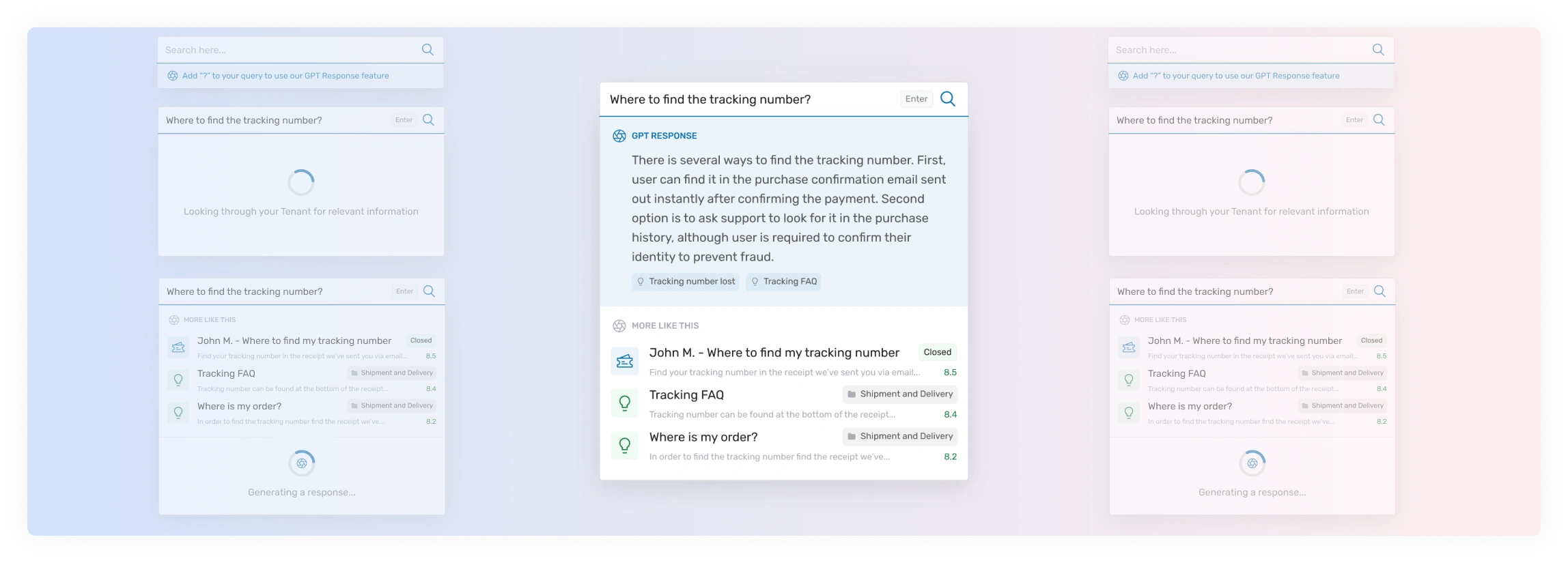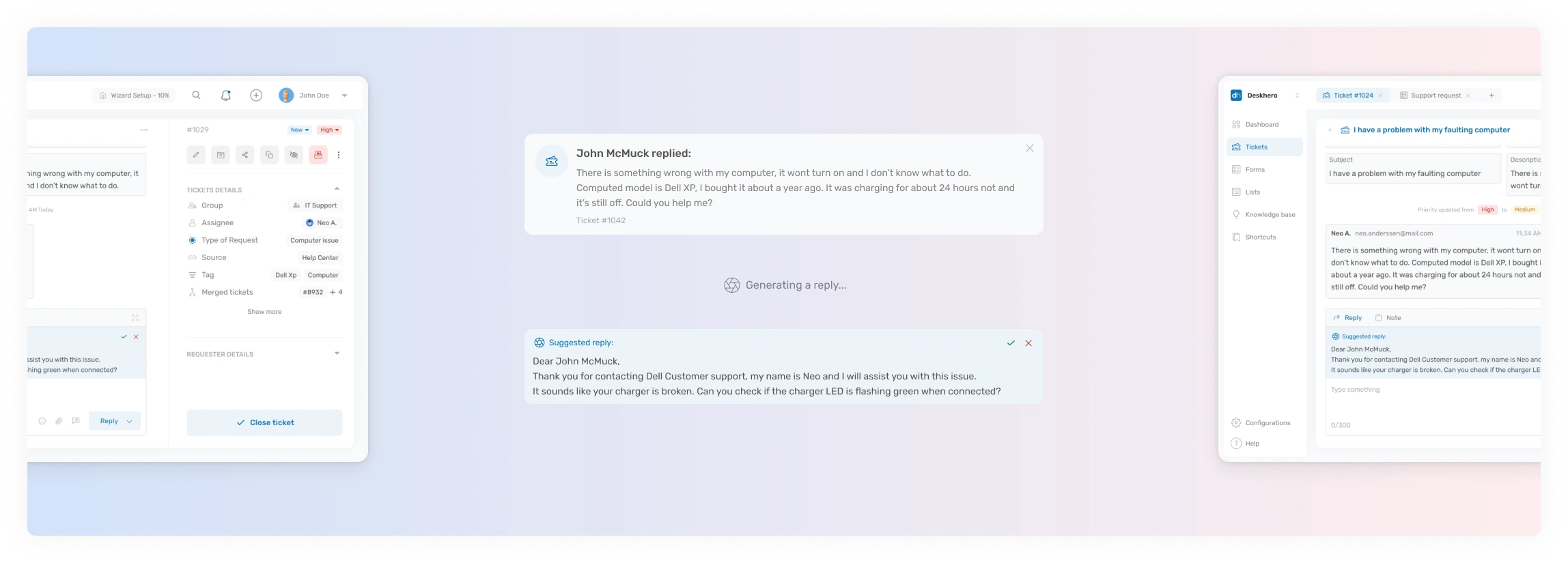The AI capability 'In app search' in Deskhero works by utilizing advanced technologies like OpenAI Embeddings and ChatGPT. Here's how it works: 1. Each ticket, knowledge base article, scraped website, and other relevant data are sent to the OpenAI Embeddings API to generate embeddings vectors. 2. These vectors are stored in a vector database for efficient retrieval. 3. When a query is entered through the search bar or a new ticket is created, the system runs the query against the OpenAI Embeddings API to find similar relevant data. 4. The system then searches all available data for matches and retrieves the most relevant information. 5. If the query is in the form of a question, the relevant data is passed to ChatGPT, which generates a response based on the attached data. This process ensures that companies in the Manufacture of caustic soda and chlorine industry can access accurate and tailored information through the 'In app search' feature.
Use case 1
Finding historical resolutions - Manufacturing companies often face recurring issues in the production of caustic soda and chlorine. By using the 'In app search' capability, they can search for previous tickets with similar problems to find resolutions. The AI-powered search will analyze the content of past tickets and suggest appropriate solutions based on the matched data.
Use case 2
Enhancing customer support efficiency - Companies can leverage the 'In app search' feature to empower their customer support agents. When customers raise queries or issues, agents can quickly search for relevant information to provide accurate and timely responses. This reduces response times and improves overall customer satisfaction.
Use case 3
Streamlining knowledge sharing - The 'In app search' capability allows manufacturing companies to easily access and share knowledge within their organization. Employees can search for specific information, such as best practices, standard operating procedures, or safety guidelines related to the Manufacture of caustic soda and chlorine industry. This promotes knowledge sharing and ensures consistency in operations.

